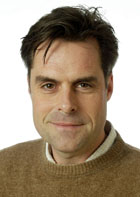Understanding Culture and Religion in the Middle East
Globalisation, urbanisation, migration, technological development, etc. increase the need for people and societies in different cultures and regions of the world to understand each other. Our understanding of people and events in the Middle East requires familiarity with classical Islamic texts and history, as well as knowledge of the region’s more recent history, especially the last one hundred years with the formation of modern states, administrations, school systems and media.

Jakob Skovgaard-Petersen
With the dissemination of printed books and newspapers followed by the electronic media, political opinions, religious sentiment, cultural self-perception, etc. have changed from being part of the heritage handed down from one generation of the family to the next, to issues disseminated and presented in newspapers and films, on radio and, most recently, via the Internet, satellite TV and social media. When, for example, a mufti (an Islamic scholar) issues a fatwā (a learned interpretation of issues pertaining to Islam), it is no longer the case that is received solely by the people it is intended for, and in the social or cultural context in which it is formulated. Instead, it is also disseminated via the media to new contexts in which it is viewed in a different cultural light and is perhaps understood in a different way to that originally intended by the mufti in question. Studies of the mechanisms at play are vital to an understanding of the Middle Eastern societies and populations.
For years, Jakob Skovgaard-Petersen and a number of his colleagues at the Department of Cross-Cultural and Regional Studies (ToRS) have studied the cultures of the Middle East, including media, media consumption, the media’s ownership, legislation and the media situation in general. Their in-depth knowledge of Arabic and other main languages of the Middle East such as Farsi, Hebrew and Turkish enables them to study how, for example, the Muhammad cartoon crisis or the current refugee crisis are treated by the media. In this way, they build up and maintain in-depth knowledge of the Middle Eastern societies and current trends in the Islamic world.
Impact
This knowledge of the Middle East is a key element of the basis for ToRS’ MA programme within the subject area of the languages and societies of the Middle East. MA graduates contribute their language skills and knowledge of cultural conditions in positions at, for example, the Ministry of Foreign Affairs of Denmark or in private companies that cooperate with and export to this region.
Below are a few examples of Jakob Skovgaard-Petersen’s extensive dissemination activities, which make a substantial contribution to increasing the level of knowledge among the general public in Denmark concerning societal development and the conflicts in the Arab world, and thereby also of the relations between Denmark (the civil society, the business community and political Denmark) and the Arab countries.
Jakob Skovgaard-Petersen is frequently – typically several times a month – asked to comment as an expert in the Danish media, explaining the background to and the significance of current events in the Arab world. He also gives lectures and holds courses for the Confederation of Danish Industry (DI)’s exporting companies, for business executives under the auspices of the VL Groups (the Danish Top Executive Network), for diplomats under the Ministry of Foreign Affairs of Denmark, and for the upper-secondary-school sector’s associations for teachers of religious studies, history and social sciences. He has written the textbook for upper-secondary schools entitled Moderne Islam (Modern Islam) (Gyldendal), which considers Muslims’ understanding of their own religion.
He also advises e.g. the Danish Ministry of Social Affairs and the Interior and a number of Danish local authorities on Jihadism, integration of Syrians in Denmark and other topics that require a mastery of Arabic in combination with an extensive knowledge of the Arab countries’ culture and history.
Further info
Examples of media appearances:
Feature article in Weekendavisen, 8 May 2015:
Islamisme og Jihadisme (Islamism and Jihadism)
P1 Orientering, 5 August 2015:
Charlie Hebdo et halvt år efter (Charlie Hebdo six
months on)
Interview in Politiken on 9 September 2015 concerning the Syrian media: Vestlige medier kan ikke fortælle
historien om Syrien (Western media cannot tell the
story of Syria)
DR-TV on 29 September 2015 on the cartoon case ten years later: Muhammed’s billeder (Muhammad’s Images)
DR’s Rosenkjær Prize (a research dissemination prize) and Lecture 2012: Islam på TV i den arabiske verden (Islam on TV in the Arab World), also published in book form by Forlaget Vandkunsten 2012.
Kontakt
Jakob Skovgaard-Petersen
Professor, Institut for Tværkulturelle og Regionale Studier
E-mail: jsp@hum.ku.dk
Tlf.: +12 02 25 89 121
